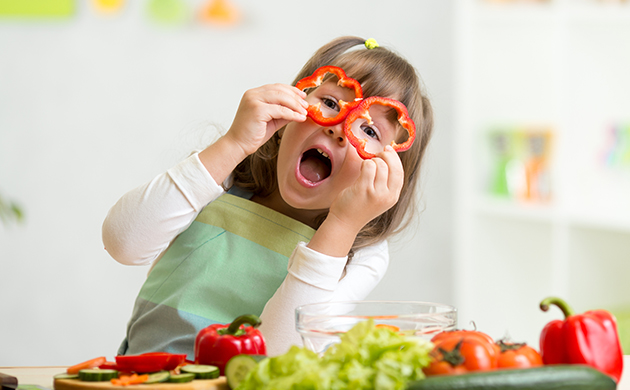It is very important to provide kids with foods that can help to improve their eyesight. Read on to learn more about the best foods for eye health.
Diet is a crucial lifestyle factor that can have long-term effects on ocular health. Nutritional deficiencies also play a crucial role in the deteriorating eye health of your child. This often leads to problems such as vitamin A deficiency and nutritional optic neuropathy. A lack of essential nutrients is the leading cause of cataracts and macular degeneration.
It is important to understand that incorporating foods for eye health can help prevent and retard the progression of several eye diseases. It is recommended that one should have enough fruits, vegetables, and nuts along with fish for healthy eyes. So, if you are worried that nutritional deficiency or excessive screen time is affecting your child’s vision, try introducing the best food for eye vision.
Food to improve eyesight
Some food for eyes may help maintain and improve your child’s vision. Here are some best foods for eye health that you should make your child eat:
-
- Vitamin A: Carrots
Carrots contain beta carotene, an antioxidant carotenoid that your body converts to vitamin A, in terms of what vitamins improve vision, vitamin A, which is considered a key nutrient for the eyes. Although different other vitamin good for eyes, vitamin A is particularly beneficial. It not only helps you see clearly but is also colourful. Vitamin A also improves your ability to see in low light, enhances eye colour balance, and keeps them well lubricated to avoid infection. It also can fight free radicals, ultimately reducing the risk of developing cataracts, muscular degeneration, or glaucoma. Other vitamin A foods for the eyes include sweet potatoes, cantaloupes, and dark leafy greens like broccoli and kale.
-
- Vitamin C: Oranges
Vitamin C is another vitamin good for the eyes. It protects the eyes against damage from ultraviolet light, oxidation, and free radicals that may otherwise give rise to eye problems like cataracts and macular degeneration. Oranges are enriched with vitamin C, believed to be from collagen, a substance that provides the structure for your cornea. This way, they help clear your vision, prevent blurred vision, and strengthen your cornea to fight all age-related disorders.
All citrus fruits good for the eyes, such as kiwi, strawberries, cantaloupe, red bell pepper, and broccoli, are a source of vitamin C. All these are food good for the eyes.
-
- Vitamin A, Zeaxanthin, Lutein, and Zinc
Egg yolks contain a good amount of antioxidants, such as zeaxanthin and lutein. Both these antioxidants help to protect the eyes against macular degeneration, cataracts and age-associated vision loss. Furthermore, Zinc in the egg helps improve the ability to see in the dark, whereas vitamin A helps you get brighter and clearer vision. Green leafy vegetables, including spinach, collard green, kale, green peas, andSwiss card, also contain Zinc and antioxidants that are considered the best foods for eye health.
-
- Omega 3 fatty acids: Salmon
Whether surrounded by the chilly winds of winter or spending long hours in the sun, your eyes get dry; omega 3 is one solution for all those red, dry, and inflamed eyes. Eating salmon fish twice a week helps maintain moisture in the eyes,making them look shiny and relaxed. It also clears off debris and avoids related infections. Flaxseeds, walnuts, soybean, and oily fish can also be consumed to fulfil the need for omega-3 fatty acids.
-
- Vitamin E: Almonds
Almonds carry a good amount of vitamin E, an antioxidant that helps to protect against unstable molecules and free radical damage. Regular intake helps to protect against eye infections, cataracts, muscular degeneration, and age-related vision loss. A diet for eye health can also include other sources of vitamin E, such as sunflower seeds and peanuts.
In addition to the best food for eye vision, it is equally important that your child has a restful and balanced routine. Experts recommend reducing screen time and, whenever required regaining eye strength with the 20-20 rule. It means when you and your child stare at the screen for twenty minutes, break that time by providing your eyes rest for at least twenty seconds. Also, make sure your child gets regular eye exams. Any repeated headache or dry or inflamed eyes could indicate eye problems, which can be mild or serious. In such cases, consultation with an eyecare specialist must be sought immediately.




